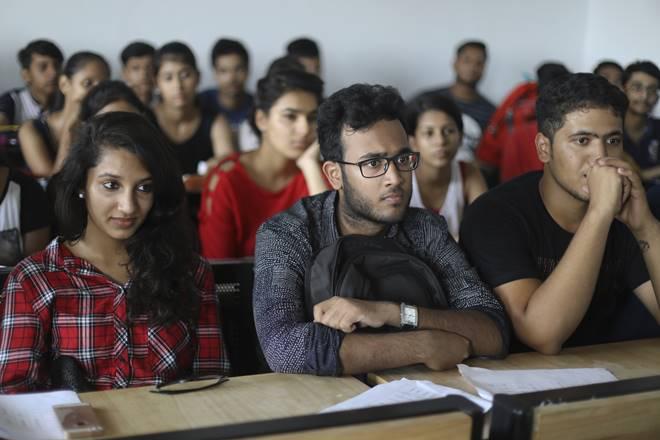Vidyamandir Classes is one of India’s oldest Joint Entrance Examination-Advanced (JEE-Advanced)—formerly IIT-JEE—coaching centres. Today, it has centres across India, but is facing competition from edtech players. Saurabh Kumar, director, Academic, Vidyamandir Classes, however, says that while edtech can supplement face-to-face teaching, it cannot be a replacement. In an interview with FE’s Vikram Chaudhary, he adds changes to the pattern of JEE have made it less stressful for students.
Excerpts:
A Gradeup survey found 90% students prefer online learning over offline when it comes to preparation for competitive exams. Is this a cause for concern?
We understand the significance of online teaching, but keep in mind that this was a survey with a limited sample size. Online teaching can never completely dominate offline, as the nature of a competitive exam is such that a physical guide (teacher) has to be there to help students. We cannot deny online education is a great support, but having said that we haven’t seen a downward trend in our enrolment; offline coaching along with digital learning is the way forward; both can coexist.
How big is the Indian coaching industry?
With teaching in the school segment expected to grow to $26 billion by 2020, there is a large market for tutoring services imparted through innovative means (India BrandEquity Foundation, 2019). The coaching industry will grow due to increased awareness, competition, and increase in education spending. Enrolments are rising at major coaching centres as students start preparing as earlyas class 8th. Also, with both parents usually working, they feel there is a need for additional coaching. Years ago college and school teachers used to conduct evening paid coaching classes.
Does that trend exist?
This concept hardly exists (in our field); it is there for Board exam preparations. Most students prefer known institutes due to the increased pressure of taking admission in the best colleges.
How will recent changes to the pattern of JEE affect aspirants?
Students will now be allowed to appear for the exam twice a year. The number of questions has been reduced from 30 to 25 (each subject), and of these 25 questions, 20 are objective, and five numerical. This has reduced 15 questions in total; now students have more time per question. Players such as BYJU’s and Extramarks provide digital learning at a lower cost compared to traditional coaching institutes.
How is edtech in general affecting brick-and-mortar coaching ecosystem?
Edtech companies can supplement brick-and-mortar companies, but it’s difficult to replace them as students from classes 8th to 12th are young enough to be self-motivated to study themselves, so a human touch or teacher-student relationship is required in that stage.
Do you have an online-only mode?
We will soon introduce online mode of delivery through videos from our best faculty members with a teaching experience ranging 15-20 years. Many edtech companies, in contrast, have young college students as teachers and the quality of content is not abundant for young aspirants. If a student realises midway during JEE coaching it’s not her area of interest.
In such a case, do you have a refund policy?
We have a refund policy that works on the accrual system of accounting.
Which regulation governs fees at private coaching institutes?
There is no official body that governs fees for the coaching industry. Fees are decided based on expenses made by a company and market dynamics.


